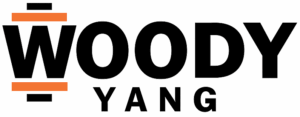Remember Napster? For a certain generation, the name conjures images of dorm room downloads, dial-up modems groaning, and the seismic shift that irrevocably altered the music industry’s landscape. It wasn’t just about free music; it was a fundamental challenge to established distribution models and the very concept of ownership in the digital age. Fast forward two decades, and the music world finds itself grappling with another disruptive force: Artificial Intelligence. AI isn’t just generating catchy jingles or background scores anymore; it’s composing, producing, and even performing music that, in some cases, is becoming indistinguishable from human-created tracks. This rapid evolution has sparked a familiar, yet complex, debate: Is AI the music industry’s next Napster moment?
The parallels are, at first glance, compelling. Like Napster, AI music generation bypasses traditional gatekeepers – labels, studios, established artists – potentially democratizing creation and distribution in unprecedented ways. It represents a fundamental technological leap that challenges existing economic models based on traditional sales and streaming royalties. The “canary in the coal mine” analogy, often applied to the music industry’s early encounter with digital disruption via Napster, feels pertinent again. The industry, having been burnt before, recognizes the potential for another large-scale upheaval. This time, the disruption isn’t just in file sharing, but in the very source of the creative output itself. The ease with which sophisticated AI can now produce music raises uncomfortable questions about authorship, value, and the future livelihood of human musicians.
However, drawing a simple one-to-one comparison with Napster might be overly simplistic. While the disruptive potential is undeniable, the context and the industry’s response are markedly different. Napster was primarily a platform for unauthorized distribution of *existing* copyrighted material. AI, on the other hand, is a tool for *creating* new material, albeit often trained on vast datasets of existing music. This distinction is crucial, particularly regarding copyright law. The music industry has learned bitter lessons from the Napster era and is arguably far better prepared, and more aggressive, in leveraging legal frameworks and bringing “the big guns” out early to shape the narrative and control the technology’s integration. Furthermore, societal attitudes towards digital consumption and content ownership have evolved significantly since the early 2000s. While challenges remain, there’s a greater understanding of the need to compensate creators, even if the models are still being refined.
The speed of AI’s progress is another factor that differentiates this moment. What felt like a “plastic kid’s toy” just a few years ago has rapidly evolved into engines capable of producing music that can fool casual listeners. The anecdote of consumers not noticing AI-generated songs mixed into a Spotify playlist is telling. While industry professionals might still detect subtle “artifacts,” the consumer experience is rapidly approaching a point of indistinguishability. This suggests that the challenge isn’t just legal or economic, but also perceptual and artistic. If the average listener cannot tell the difference, what does that mean for the perceived value of human artistry? This rapid technological leap demands a more nuanced response than simply shutting it down; it requires adaptation and understanding.
Ultimately, the future trajectory of AI in the music industry likely won’t be a simple repeat of the Napster saga. Instead of a complete overthrow, we might see AI carve out specific niches, potentially dominating areas like background music, functional scores, or even aiding human artists in creative processes. The legal battles over copyright and training data will undoubtedly continue to shape the landscape. The key question isn’t whether AI will disrupt the industry – it already is – but *how* the industry, artists, and consumers will adapt to and integrate this powerful new tool. Will it be a collaborative evolution, or a contentious battleground? The final notes of this symphony are yet to be written.














